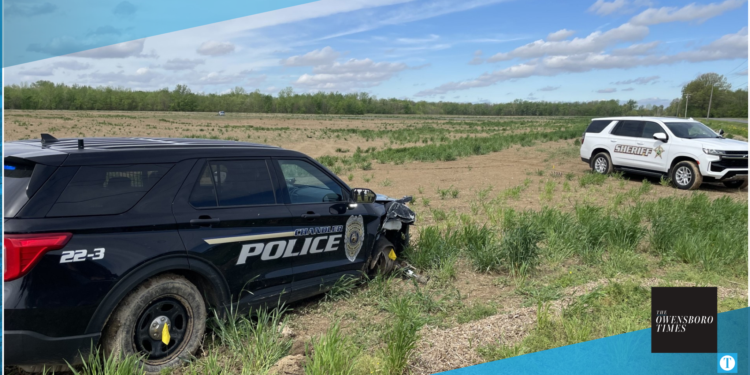Chris Gutierrez and Ken Bennett wheeled a cooler through a run-down apartment complex under a gray sky as they went door-to-door looking to help those in need. The rain Saturday did not stop the duo from delivering food and information to the immigrant and refugee population in Owensboro who are clustered in pockets of the city — particularly in the lower-income areas.
“Would you like some food — warm, homemade food, tamales?” Gutierrez asked one man who answered the door. “We’re going around Time Drive. I’m a deacon at the church.”
Gutierrez and Bennett — both deacons within the Diocese of Owensboro — handed out tamales, a flier and handmade masks. Many of the residents didn’t speak English, but Gutierrez was able to communicate with some in Spanish.
“It’s a way of letting our most vulnerable know … that many of us do care, and we want to reach out,” said Gutierrez, director of Hispanic Ministry and deacon at Saint Michael Parish. “We can’t feed the whole city, but we can feed a few.”
The two men made it to about 50 homes before they ran out of food and said they’ll be back next Saturday to serve the remaining complexes.
Bennett, a deacon at Our Lady of Lourdes Parish and a police officer with Owensboro Police Department, handed out a flier that contained a meal schedule for some of the food pantries in Daviess County as well as health tips on how they can stay safe from COVID-19 — including a phone number to the Catholic Charities of the Diocese of Owensboro for assistance with rent, utilities and other necessities.
The immigrant and refugee population are struggling in the shadows, said Catholic Charities director Susan Montalvo-Gesser, who is also an immigration attorney.
“In immigration, there’s a bunch of rules about not receiving help if you want to become a legal permanent resident or citizen,” she said. “There’s a big negative connotation in the immigrant community about getting services and the question of whether or not that help is attached to the government.”
Montalvo-Gesser said many of the immigrants whom she has worked with aren’t familiar with seeking services in part because of dignity and because they’re scared.
“The safety net has to be non-governmental organizations, and we have to convince immigrants that receiving this help isn’t something negative that’s going to affect their immigration case later on,” she said. “And that’s why a lot of them are so scared.”
Montalvo-Gesser said the foreign-born population in Owensboro is less than three percent, but it’s getting bigger.
“We know that there are families right now, and the need is increasing, that they are struggling in terms of food,” Gutierrez said. “Even before this crisis, the immigrant community, particularly the undocumented immigrant community, are forced to live in the shadows. This COVID-19 makes it a whole lot worse.”
—–
Click here for all of our coronavirus coverage.
The Owensboro Health coronavirus hotline is available 24/7 by calling 877-888-6647. Call the hotline before seeking in-person care. More information from OH can be found here.
For the latest information and data on COVID-19 in Kentucky visit kycovid19.ky.gov or dial the Kentucky state hotline at 800-722-5725.
For the latest health guidelines and resources from the CDC, visit their website here.



